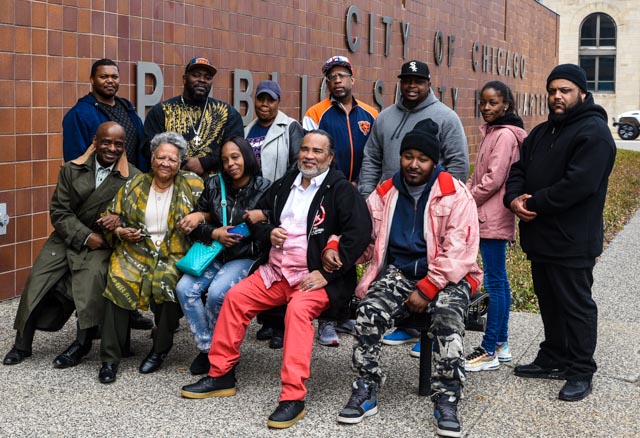In 1991, Otis Monroe founded the Monroe Foundation, a non-profit organization that seeks to educate, link and fund development projects within low-income communities in Illinois.
On April 17, 2019, the Monroe Foundation – with the help of several other local organizations – hosted Rap Sheet Day, which is a collective effort to help formerly incarcerated Chicagoans create a new beginning.
Alongside the North Lawndale Employment Network, Teamwork Englewood, The Rock Enterprise and Development Corporation (T.R.E.A.D) and PNC Bank, Monroe shuttled Chicagoans with criminal backgrounds from their south and westside locations to the event at the Chicago Police Headquarters located at 3510 South Michigan Avenue.
In 2012, the Illinois Supreme Court announced a law allowing all misdemeanors and most felony convictions to qualify for sealing or expungement with the exception of some felony offenses that require a two- or three- year waiting period after the completion of one’s sentence. The only offenses that cannot be sealed or expunged are DUIs, domestic battery, animal cruelty and any registrable felony offenses.
Re-entry program manager Michael Mitchell of Teamwork Englewood explained going through the standard process to seal or expunge a criminal record takes several days, which is something that most people he works with just can’t afford. Many are also completely unaware of these new laws that allow them to conceal or erase their criminal history. “The population in need of it is not even aware that their [felony] cases are sealable, you know…once we put the word out, we started getting calls.”
At the headquarters, participants began the process of obtaining and viewing their criminal records for the purpose of deciding whether to expunge or seal their rap sheets.
“Our goal is to make the re-entry process much more effective and real for the formerly incarcerated by removing some of the barriers that have prevented them from accessing the process,” said Otis Monroe.
Paul Bond, president of the Monroe Foundation board and vice president of Community Development Banking for PNC Bank was also at the event.
“Through our collaboration with the Monroe Foundation and it’s collaborative members, we were able to work with some very, very conscientious elected officials and other partners to help streamline that process. The good news here is that everybody agrees that this was needed to be done,” Bond said.
According to Monroe, another barrier for people with a rap sheet is the fear and stigma behind interacting with the police. “We’re talking about entire households within the African-American community to have had some contact with the judicial system. And we believe that a pathway towards minimizing violence in many of our communities is to impact the risk of recidivism,” he said.
As of April 5, the U.S. Bureau of Labor and Statistics has reported that Black Americans have the highest unemployment rate in the United States, with Illinois having one of the highest black unemployment rates nearly every quarter since 2016. According to the Federal Bureau of Prisons, Black folks make up nearly 38 percent of the prison population in the United States despite only encompassing 13.4 percent of the entire U.S. population.
A study conducted by the Prison Policy Initiative in 2017 found the unemployment rate of formerly incarcerated people in 2008 (the most recent year of available data) was 27.3 percent compared to 5.8 percent of the general public. This exceeds even the highest level of unemployment ever recorded in the U.S. – 24.9 percent – during the Great Depression.
“When we go to apply, we see the invisible punishment that most people don’t see… I’m an ex offender,” said Mitchell, re-entry program manager. “So I know, Right? I know right now, I have four post incarceration degrees – the latter two being masters – [but] today if I go to Walmart and apply they’d tell me no! I’ve been out over 20 years. So, you know, it’s an impediment, it’s a barrier…to being successful in life.”
What Monroe refers to as the “Getting Clear project” has expedited the process of getting people back into the workforce, not only so they can begin to improve their lives but also the lives of their families, their loved ones and community members.
“In a beautiful world, an ideal world after 10 years if you have ever been arrested, we expunge your record period and give you back all your rights. Every right that a human being has,” said Mitchell. “We are hopefully heading in that direction.”
The next “Rap Sheet Day” will be hosted on Saturday, June 1. For more information, visit www.themonroefoundation.org/business.




